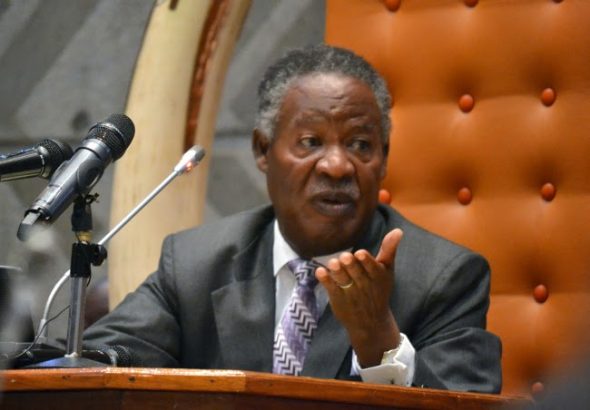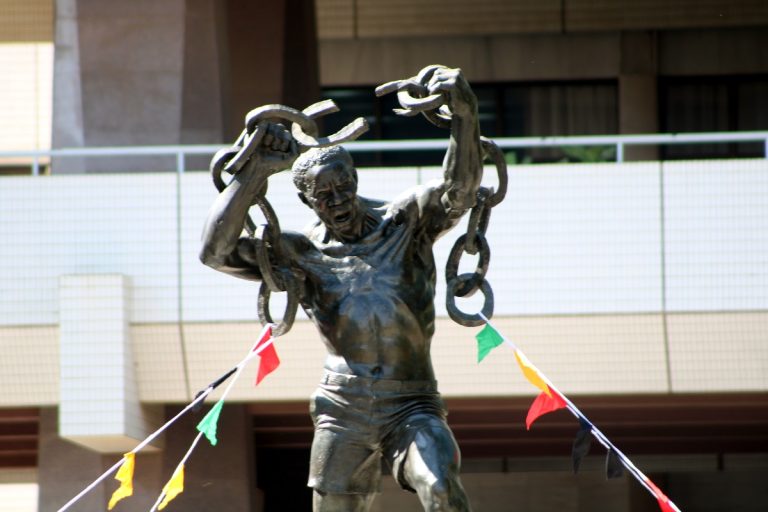
FAZ has condemned the surge of hate speech aimed at Barbra Banda, declaring an unwavering commitment to safeguarding her rights as she continues to shatter records on the global stage. With calls for justice against the calculated attacks, FAZ affirms that football has no room for bigotry or abuse.
Lusaka, Nov. 29 – The Football Association of Zambia (FAZ), through its Communications Manager, Sydney Mungala, has issued a statement condemning the abusive messages directed at Zambia Women National Team captain Barbra Banda following her recent recognition as the BBC Women’s World Footballer of the Year. FAZ has taken note of the calculated nature of these attacks and emphasized the association’s commitment to safeguarding Banda’s rights.
Also Read: Arsène Wenger explains why FIFA wants to open a football academy in Zambia. Zambia will benefit from FIFA’s football education initiative, which will see the world football governing body establish 75 academies in various countries.
Earlier in the year, the BBC’s nomination of Barbra Banda for its Women’s Footballer of the Year award sparked controversy, drawing sharp criticism from the Women’s Rights Network (WRN) and prominent sports figures. The controversy stemmed from Banda’s exclusion from the 2022 Women’s African Cup of Nations (WAFCON), which her camp attributed to preemptive actions by FAZ rather than formal gender testing.
FAZ President Andrew Kamanga was quoted as saying, “As FAZ, we have been made aware of offensive messages directed at our Copper Queens skipper after she won the BBC Women Footballer of the Year award. We have sought the help of continental and global football authorities to ensure that punishment is meted out to the perpetrators of race-tinged attack on Barbra.”
Kamanga also highlighted the broader implications of such abuse: “Barbra has not only been abused as a human being but also as a footballer, which makes it hard for prospective African footballers to aspire for excellence in the game. Football has no space for racial and rights abuse for anyone involved in the game.”
To that effect, the Executive Director of the National Women’s Soccer League (NWSL) players association Meghann Burke has called out British author of the Harry Potter movie J.K Rowling for claiming that Barbra Banda winning the BBC player of the year award is an insult to women. Burke has slammed Rowling on X describing her claims as personal insults “cloaked with racism and lies.”
And Speaking on Banda’s achievements, Kamanga remarked, “We cannot congratulate Barbra enough for the many accolades she has won in the women’s game, including her recent nomination for the Ballon d’Or where she emerged 12th. Barbra is also in the running for the 2024 CAF Women Footballer of the Year, NWSL Most Valuable Player, and BBC Women Footballer of the Year.”
Her recent achievements include becoming the leading African goal scorer in Olympic history with 10 goals after her performance at the Paris Olympics, where she scored four goals, including a hat-trick against Australia. She also excelled in the NWSL with 13 regular-season goals and four playoff goals, including the championship winning strike that earned her the Most Valuable Player (MVP) title. Her transfer to Orlando Pride earlier this year for $740,000 made her the second-most expensive women’s football signing in history.
Also Read: 9 iconic footballers who had their shirt numbers retired! “Weah is the only national team entry on this list! Numbers always change at international level, so to have one retired is seriously unique.”
Amid the heated debate, Banda has spoken openly about the personal and professional hurdles she has faced, emphasizing the resilience and determination behind her success. While critics demand accountability from the BBC, Banda remains undeterred, focusing on her dream of becoming the greatest footballer in the world and inspiring a generation of athletes through her journey.
About Our Advocacy: Woodpecker’s Digest provides in-depth analyses and commentary on issues of national importance, alongside articles on personal development and health. We believe journalism can be a force for socio-economic change.
©2024 Woodpecker’s Digest.
Journalism for social change







